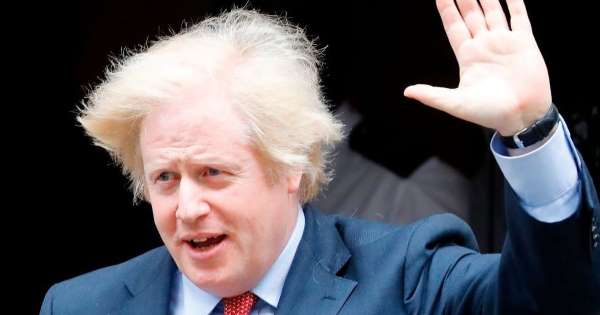Blue on Blue Wars: Furlough and Post-Covid Austerity


Six weeks ago, Boris Johnson dismissed the idea of using spending cuts to pay off Britain’s rapidly-inflating coronavirus debts. “I’ve never particularly liked the term that you just used to describe government economic policy and it will certainly not be part of our approach,” the prime minister told a reporter during a Downing Street press conference on 30 April. “Austerity, by the way, was the term you just used.”
*
At first glance, the explosion of state expenditure triggered by COVID-19 seems to have been embraced by the Conservative Party. According to the Office for Budget Responsibility, the UK’s deficit will hit 15 per cent of GDP by the end of 2020 and public debt will top 115 per cent by the middle of 2021. These are staggering figures — at the height of the 2008 financial crisis, Britain’s deficit didn’t exceed 11 per cent of GDP.
*
And yet, despite this unprecedented spending glut, Tory politicians have mostly toed the government line. “Coronavirus is arguably the greatest peacetime threat the UK has faced and as such requires an equal and appropriate response,” Paul Davies, the leader of the Welsh Conservatives, remarked on 17 March, in response to Rishi Sunak’s £330bn rescue package for the British private sector. “The bailout promised by the Chancellor has delivered this.”
*
Johnson’s fondness for state-led investment — and apparent unease with the austerity policies of previous Conservative administrations — predates COVID-19. In the run-up the last year’s general election, as part of his pitch to Brexit-supporting constituencies in Labour’s northern English heartlands, the Tory leader promised to “level-up” Britain’s core national infrastructure and boost spending on the NHS.
*
The prime minister can also read opinion polls. He knows that coronavirus has heightened the public’s appetite for a more interventionist economic strategy. Research published by YouGov in April found that 72 per cent of British voters backed the introduction of a government jobs guarantee and 51 per cent favoured a universal basic income. These trends will only deepen in the coming months, as the full impact of the virus becomes clear.
*
Beyond the gloss of Johnson’s One Nation rhetoric, however, there is growing disquiet on the British right. Conscious of the potential for a lasting political shift to the left — and away from neoliberal capitalism — prominent conservative voices have been pushing the case for a fresh round of austerity cuts, ready to be implemented once the pandemic has been brought under control.
*
“When this is over there is going to be a very large amount of debt and it’s not going to be bonanza time,” the former Chancellor George Osborne told the Confederation of British Industry on 20 April. “We’ll be going back into a period of retrenchment and trying to bring public-sector debt down.”
*
Writing for the Conservative Home website on 21 May, Imran Ahmad Khan, the newly elected MP for Wakefield — one of the Red Wall seats so central to Johnson’s electoral success in December — issued a thinly-veiled warning to his party about the mushrooming size of the British state. “Conservatives do not wish to let this transition become a permanent one,” he said.
*
And on 10 June, the rightwing Institute for Economic Affairs (IEA) published a new briefing paper, ‘Rebooting Britain’, that proposed a raft of radical supply-side reforms — including slashing labour market regulations, scrapping increases to the National Living Wage, and ditching Sunak’s “expensive and distortionary” furlough scheme — aimed at kick-starting the UK’s economic recovery. “The state has had to step in to protect jobs while the economy has been shut down,” Len Shackleton, one of the report’s author, wrote. “But now the government should step aside and let markets work normally again.”
*
It’s tempting to dismiss these interventions as the rumblings of an unfashionable libertarian fringe. They’re not. The IEA is hugely influential inside the Conservative Party. Fourteen members of Johnson’s first cabinet had direct links to the Thatcherite think-tank — sometimes characterized as a “free-market Taliban” — and the current foreign secretary, Dominic Raab, effectively functions as “the IEA’s man in government.”
*
Moreover, the Treasury itself has expressed concerns about over-spending. Whitehall may need to freeze public sector pay and hike National Insurance in order to reduce Britain’s overall debt burden, a leaked departmental document suggested in May. Such measures could help “enhance [Britain’s] credibility and boost investor confidence,” the memo stated.
*
Johnson isn’t going to buckle to this pressure right away. As James Meadway has pointed out, the next batch of Tory cuts, when they arrive, will be “carefully calibrated to political requirements.” That is, targeted at sections of British society — certain local and devolutionary layers of government, for instance — that are strategically advantageous to the Conservative Party. Nor will Number 10 commit to anything that risks alienating the former Labour voters it won over, in such dramatic fashion, six months ago.
*
At the same time, the prime minister is weak. His catastrophic handling of coronavirus — crystallized by his refusal to sack Dominic Cummings — has come at the expense of his political credibility. At the start of May, Johnson had a personal approval rating of plus 22 per cent; four weeks later, that figure stands at minus seven per cent.
*
The Tory leader was once an asset to his party. Now he’s a liability. That makes him vulnerable in the face of a fractious conservative coalition of Thatcherites, populists, and do-or-die Brexiteers. He can hold this coalition together for a while. But even after the transformative experiences of COVID-19, it’s difficult to see the British right reconciling itself to the prospect of a permanently enlarged state.
